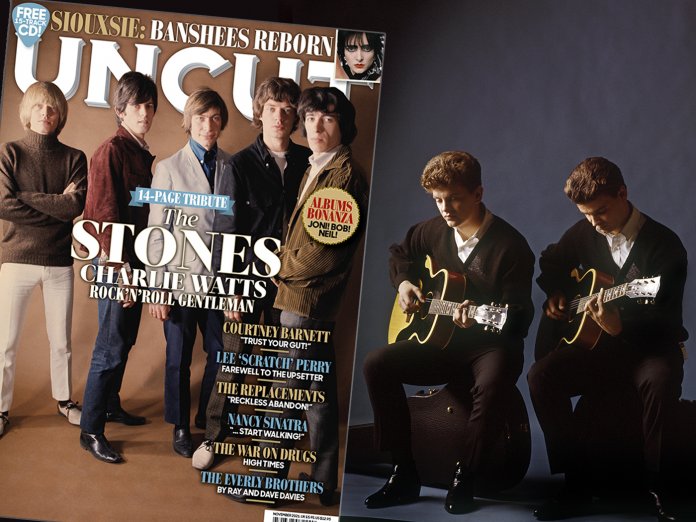In the mid-’50s, no-one wanted to cut Bye Bye Love. The songwriting team of Felice and Boudleaux Bryant shopped it around Nashville and got 30 rejections. Then the song found its way to a teenage duo freshly arrived in town and signed to Cadence Records. Don and Phil Everly – 19 and 17 years old...
In the mid-’50s, no-one wanted to cut Bye Bye Love. The songwriting team of Felice and Boudleaux Bryant shopped it around Nashville and got 30 rejections. Then the song found its way to a teenage duo freshly arrived in town and signed to Cadence Records. Don and Phil Everly – 19 and 17 years old respectively – agreed to cut it. But once they got in the studio with a band, led by their mentor Chet Atkins, they realised something was missing.
During a break, Don started practising a riff on his acoustic guitar – a choppy, staccato rhythm with an emphatic downward strum. He’d based it on a Bo Diddley lick. Boudleaux Bryant loved it. They added it to the song’s intro as a fanfare, and the single nobody wanted quickly shot to No 2 on the Country charts. By the time they performed it at the Grand Ole Opry, they had a crossover hit on their hands. No more country package tours; they quickly graduated to rock shows organised by Alan Freed.
Don Everly’s riff was significant – not just as a revved-motorcycle opening to one of the great singles of the ’50s – but also a demonstration of how he and his brother bridged black R&B and white country music to put a new spin on rock’n’ roll. Bye Bye Love heralded a band steeped in expressive songwriting – by the Bryants, but also by Don himself – and taut sibling harmonies. The song’s subject matter is bleak
– “Hello emptiness, I feel like I could die”– but their harmonies are upbeat, chipper, cavalier, as though this teenage heartbreak is an everyday affliction. They don’t brush off those bad feelings but complicate them in a way that resonated with fans then and fans now.
It’s almost impossible to overstate the Everlys’ vast influence on every subsequent generation of rock’n’folk and roots artists. Paul Simon heard them on the radio and started a similar group with his friend Art Garfunkel called Tom & Jerry; a decade later, when they were performing under their own names, they covered Bye Bye Love with a capacity crowd in Ames, Iowa. John Lennon and Paul McCartney dubbed themselves The Foreverly Brothers and covered their songs at talent shows before moving to Hamburg. If a rock band featured harmonies or dreamy teenage sentiments or quarreling brothers, it meant they were Everly fans. New generations regularly discover and cover them, including REM, Cat Power, Angel Olsen, Sara Watkins, Norah Jones and Bonnie “Prince” Billy.



